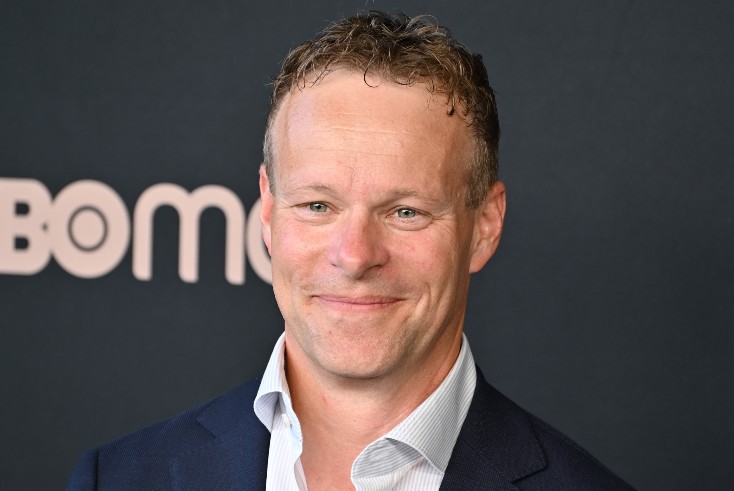Chris Licht departs: How the mighty have fallen at CNN

Opinion
As CNN CEO Chris Licht is summarily ejected from his post, Stephen Arnell reflects on strategic failures at parent company Warner Bros Discovery and lessons for UK broadcasters.
The most surprising thing about the swift fall from grace of Chris Licht is not so much his departure, but why he was ever considered suitable for the job in the first place when, just over a year ago, he was hired to replace semi-disgraced predecessor Jeff Zucker.
The answer of course is that his boss David Zaslav (CEO of Warner Bros Discovery) appeared to regard Licht as a pliable cat’s paw to engineer his desired shake-up at CNN.
A series of entirely predictable programming missteps alienated both on and offscreen talent, culminating in his decision to cement a rightwards turn for the network by broadcasting a live CNN Town Hall event with disgraced former POTUS Donald Trump – making sure (in Licht’s own words) that the invited audience were, “extra Trumpy“.
This ensured the broadcast resembled a Trump rally, rather than an impartial Q&A — and, even if it had taken place under those conditions, the wisdom of giving the insurrectionary former President a platform was at best dubious.
Stepping on rakes
Licht’s recent profile in The Atlantic proved the last straw, with the struggling CNN chief repeatedly stepping on verbal rakes. It prompted Columbia Journalism School professor Bill Grueskin to comment: “It wouldn’t be fair to say a trained seal could do a better job running CNN than Chris Licht. It’s just that, after reading this piece, it feels like we should give the trained seal a shot.”
It wouldn’t be fair to say a trained seal could do a better job running CNN than Chris Licht.
It’s just that, after reading this piece, it feels like we should give the trained seal a shot at it, and if it doesn’t work out, Licht could return. https://t.co/JRO4Iw7WJe
— Bill Grueskin (@BGrueskin) June 2, 2023
Zaslav has form with recasting channels when the mood takes him, with a decidedly mixed record of success: OWN and Investigation Discovery worked out well, but Planet Green, Discovery Kids, lifestyle channel Magnolia, and now CNN not so much.
The rebranding of streamer HBO Max as Max, junking critically lauded scripted series (Perry Mason the latest one), tax write-offs (the Batgirl movie) and a general directionless cheeseparing winning Zaslav few (if any) admirers. His hard-edged management style also has few fans beyond his immediate supporters, not a great situation when things go south.
As indeed they appear to have gone, with Warner Bros. Discovery Inc. (NASDAQ: WBD) stock has falling by approximately 24% in the past three months.
Is there a lesson for UK broadcasters?
After a cost-cutting merger with BBC World on 3 April, the BBC News Channel followed a broadly Zaslav/Licht strategy, with bland presenters, a focus on international stories, and an increased emphasis on tabloid/DM “news” resulting in a predictable decline in viewership.
According to BARB, the channel’s audience reach in April 2023 was 9.7m viewers, down 9% from 10.7 million in March and a whopping 23% from 12.6 million the previous April.
The recent decision for BBC News to interview disgraced This Morning presenter Phillip Schofield by the ubiquitous Amol Rajan was taken by many as a sign of the decline of the organisation under former Pepsi salesman director general Tim Davie and newly installed director of news John McAndrew. McAndrew of course famously previously being the short-lived former editorial director at right-wing GB “News”.
Doubtful whether the employees of BBC News hold anything like the power of CNN’s grandees, who made it plain what they thought of Licht’s disastrous Trump Town Hall.
Veteran presenter Christiane Amanpour said she had, “a very robust exchange of views” with Licht about the event, going on to say at a Columbia Journalism School commencement address, “Maybe we should revert back to the newspaper editors and TV chiefs of the 1950s, who in the end refused to allow McCarthyism on to their pages unless his foul lies, his witch-hunts and his rants reached the basic evidence level required in a court of law.”
Unfortunately, BBC News looks increasingly hollowed out, with many deciding to jump ship rather than attempt a course correction from within.
More work for Amol Rajan, though. I guess.
 Stephen Arnell began his career at the BBC, moving to ITV where he launched and managed digital channels. He continues to consult for streamers and broadcasters on editorial strategy. He currently writes for The Spectator, The Independent, and The Guardian on film, TV and cultural issues. He is also a writer/producer (including Bob Fosse: It’s Showtime for Sky Arts) and novelist.
Stephen Arnell began his career at the BBC, moving to ITV where he launched and managed digital channels. He continues to consult for streamers and broadcasters on editorial strategy. He currently writes for The Spectator, The Independent, and The Guardian on film, TV and cultural issues. He is also a writer/producer (including Bob Fosse: It’s Showtime for Sky Arts) and novelist.




